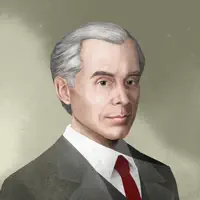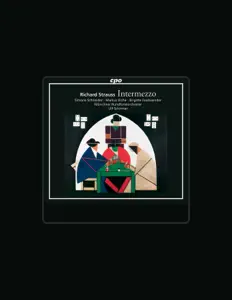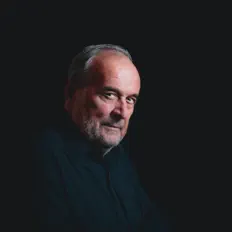
Classical
Germany
Richard Strauss
Richard Straussのトップソング
Richard Straussの他のアルバム
Richard Straussについて

出身地
Munich, Bavaria, Germany
誕生日
June 11, 1864
ジャンル
Classical
Born in Munich in 1864, Richard Strauss was the only child of one of the finest horn players in Europe. At first conditioned by his father’s conservative musical tastes, Strauss then rebelled and became a passionate admirer of Wagner’s radical Romanticism. The symphonic poem Don Juan (1888) initiated a sequence of brilliant orchestral works that established Strauss as one of the leading composer-conductors of his era. In 1894 he married Pauline de Ahna, whose soprano voice was a lifelong inspiration, although she soon retired from her singing career to bring up the couple’s son Franz. Strauss’ third opera, Salome (1905), was a scandal-generating success that he quickly followed up with the wildly modernist Elektra (based on Sophocles’ play). Then a change of approach produced the sumptuous and lyrical Der Rosenkavalier (The Rose-Bearer). Another 10 operas followed at regular intervals, including Die Frau ohne Schatten (The Woman Without a Shadow) and Arabella. Although Strauss resigned from a cultural post in Hitler’s Nazi government in 1935 after only two years, the association tarnished his international reputation for decades afterward. In the years before his death in 1949, he produced late operatic masterpieces in Daphne and Capriccio, and came up with some of his most radiant music in his Four Last Songs for soprano and orchestra.
Richard Straussから影響を受けましたRichard StraussはBielfield、 Béla Bartók、 Norberto Valdesやその他の音楽に影響を与えてきました。
Richard Straussに似た曲やアーティスト
Richard Straussに似た他の音楽やアーティスト(たとえばMunich Reichssenders Orchestra、 Tivoli Orchestra、 Brenden Patrick Gunnellなど)をもっと見つけましょう。




















![Liya Petrova, Alexandre Kantorow, Royal Philharmonic Orchestra & Duncan Wardの「Momentum [2]: Korngold, Strauss」を聴こう。 Liya Petrova, Alexandre Kantorow, Royal Philharmonic Orchestra & Duncan Wardの「Momentum [2]: Korngold, Strauss」を聴こう。](https://is1-ssl.mzstatic.com/image/thumb/Music211/v4/13/d4/15/13d41522-156e-9ecd-c78f-524b3881fa29/3760127226901_cover.jpg/276x276bb.webp)









































































































